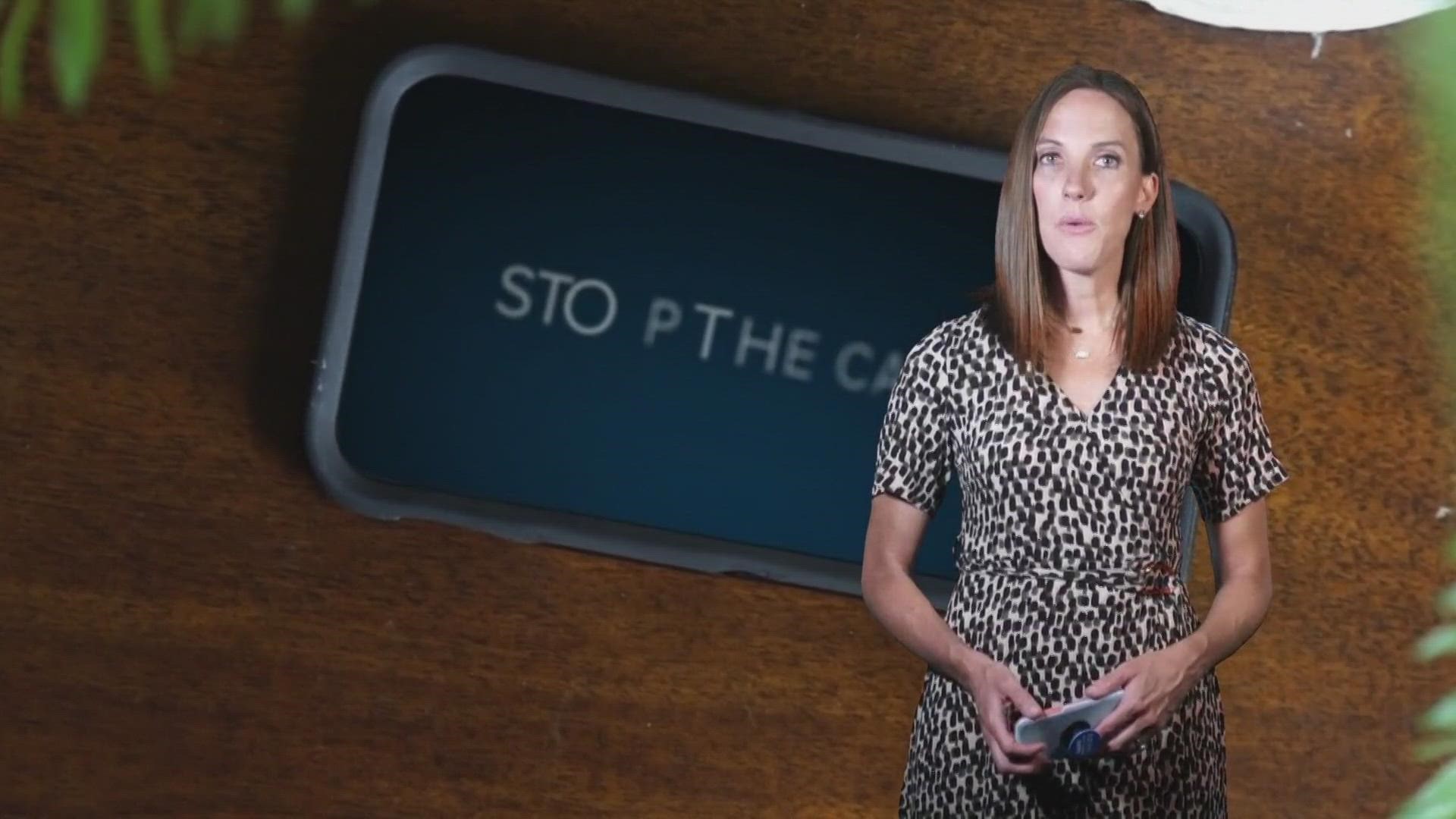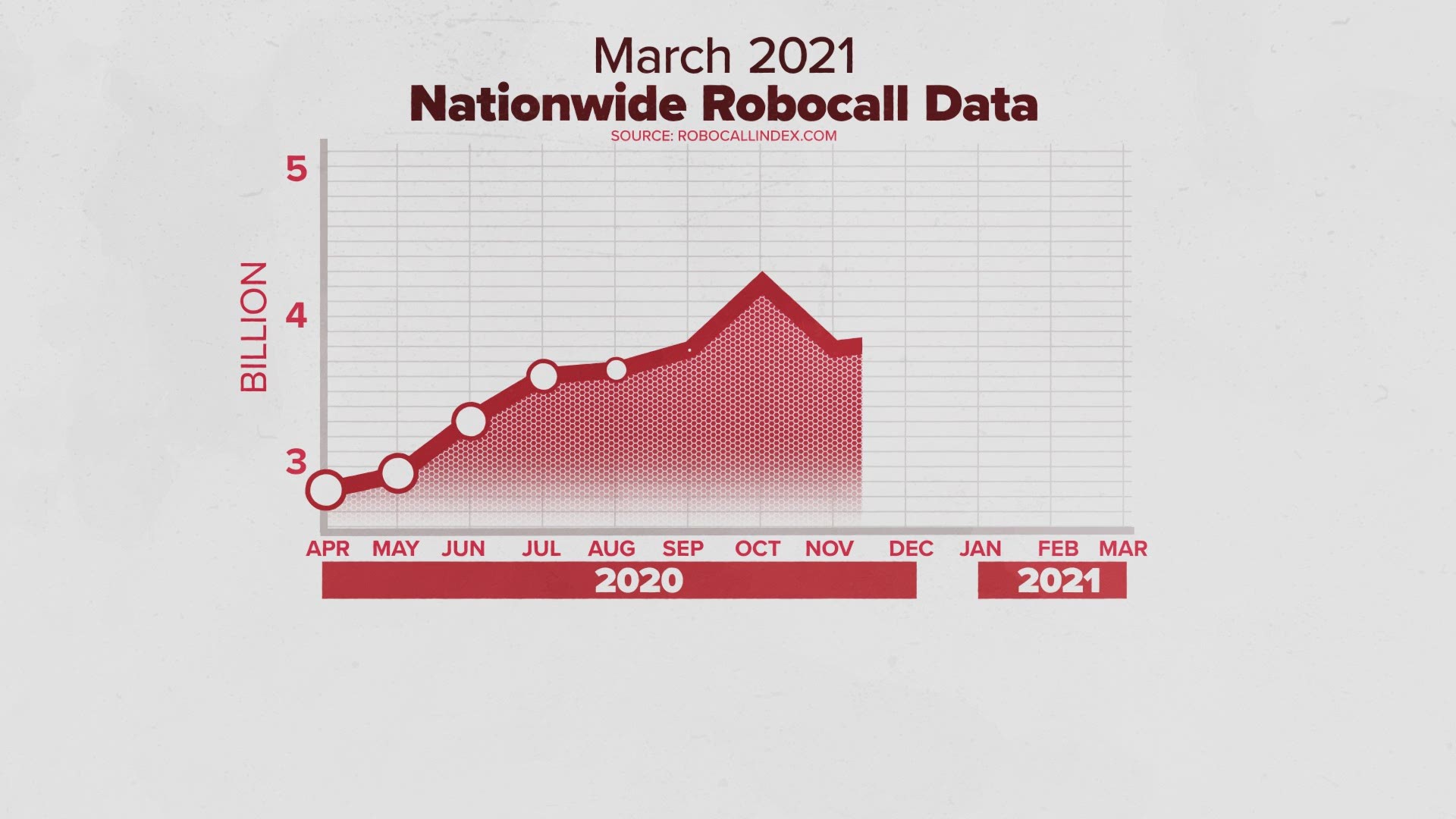Florida inmates are making robocalls – and the state is cashing in on them
Millions of robocalls hit Tampa Bay-area phones every year. But there's a place here that's placing the calls to people elsewhere in the U.S.
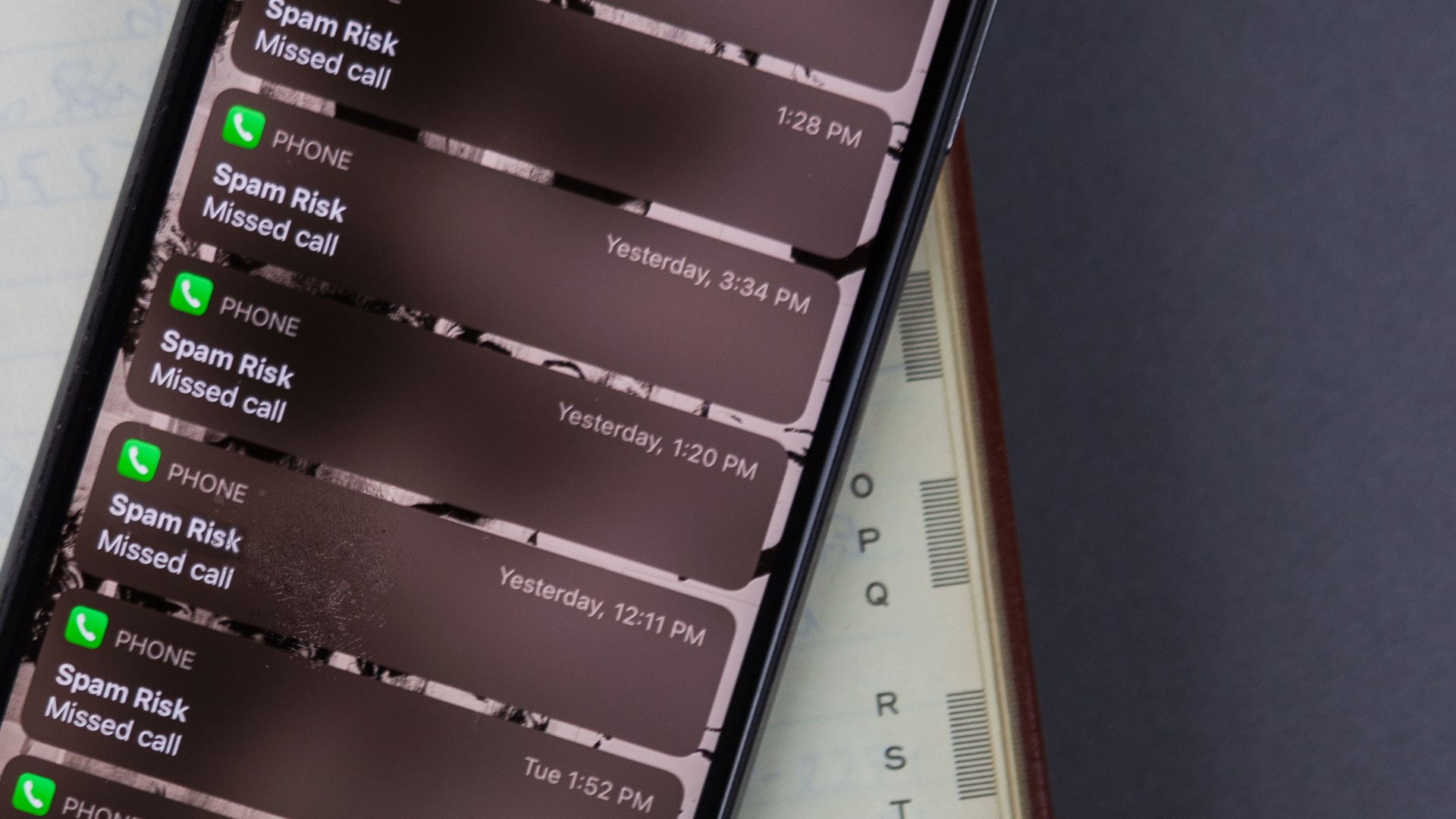
How many times a day have you looked at your phone – many times, right? – and you see a number you don’t recognize? Maybe the screen even says "scam likely."
So, who's behind these calls? Some of the people making them might surprise you. Our 10 Investigates team looked into who could be on the other end and learned what your elected officials are doing to stop them.
Is it enough?
For one Tampa Bay-area woman, lawmakers' efforts are too little, too late. Now, she's out almost $1,000 after picking up her phone.
WATCH THE 'STOP THE CALLS' SERIES:
More than an annoyance There have been more than 18 billion robocalls placed so far in 2021.
"It started out with a telephone call from El Paso, Texas, area code," Robert Gettig said. "And he identified himself as a DEA agent, and said that they were working on some international trafficking...and that they needed her help."
It was a phone call to his loved one, and it was very convincing.
"She said that he was DEA agent," Gettig explained. "He had given her the badge number, warned her not to talk to anyone else about this; but they needed her help."
Eventually, they paid the person on the other end of the line $900. Whoever was on the line called, maybe, up to eight times a day until the phone was shut down, Gettig said.
"And that's part of it, you know, just badger them," he added.
Calls like that aren't stopping. State and federal data show robocalls are just getting worse. So far, in 2021, YouMail reports there were more than 18 billion robocalls placed nationwide.
"That's why I'm always pushing folks to report these calls. They seem like a nuisance. We don't want to do anything about them but be part of the solution and report them," Florida Attorney General Ashley Moody said. Her office, she added, has made it a priority to crack down on these unwanted calls.
Our TEGNA investigative team bought 16 brand new cell phones and spread them out in television markets across the country. Every one of them started getting robocalls weeks or even days after activation, in some cases, without those phones ever being used to call or text. The team took it a step further and did something really no one wants – forward those calls to us.
So what, exactly, is a robocall?
It's "any unwanted or illegal bulk call that's made," said Aaron Foss, the founder of Nomorobo. "We don't really care if there is a person at the other end, if it's prerecorded, even it's a text message. We consider all of those bad robocalls. On the other hand, good robocalls – police, fire, school closings, prescription reminders.
"Yes, those are technically robocalls, but they're absolutely wanted and legal."
RELATED: How do robocalls work?
Nomorobo bought thousands of phone numbers no longer used that were once plagued by robocalls.
"We have over 350,000 lines that we control and we can go and record them, transcribe them, analyze them, forward them and really get a good grasp on what's happening in the robocall landscape," Foss said.
With the help of Nomorobo, we forwarded some robocalls to one of our TEGNA colleagues, Chris Ingalls, at KING-TV in Seattle. The calls came in one after another.
And then, this exchange: "So, it's OK if I return the call?"
"Yes, sir," said the person on the other end of the line, who somehow was connected with the Florida Department of Corrections. "You will start to receive a flat rate only paying $29.99 a month."

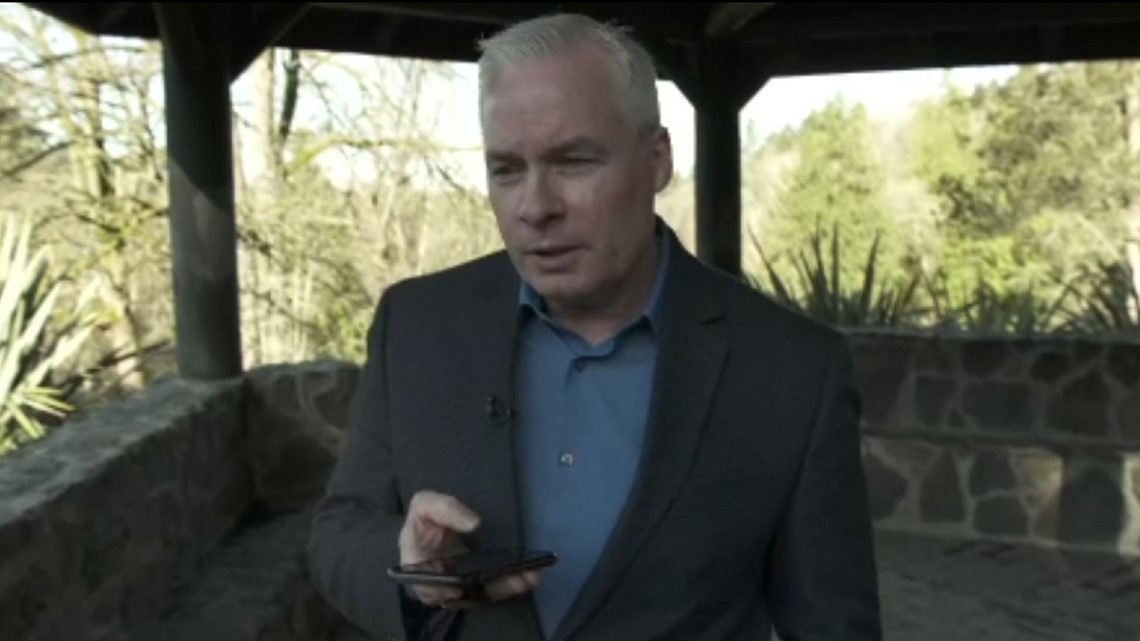
Inmates on the line One employee told us she could make up to $500 weekly, but being a caller took a toll.
In the shadow of this sun-bleached landmark that bears this Florida city's name is a quiet strip mall office, where thousands of calls reach across the country every day.
Also connected to this office? Inmates.
It's an office that has a list of complaints against who's inside, alleging they won't stop calling consumers.
"I would say probably around December of 2019, they started and then they just had been consistent all throughout 2020," Mark Santos, who lives in California, said. The calls became so bad, he said, he decided to file a complaint with the Better Business Bureau.
The calls were coming from Southeast Energy Consultants in Pinellas Park, Florida.
"The calls really started getting more and more aggressive and that's what prompted me to reach out to the Better Business Bureau because it was just annoying and every call ended with me saying, 'Look, you know, please put me on your do not call list,' and that very, you know, clearly wasn't being wasn't effective," Santos said.

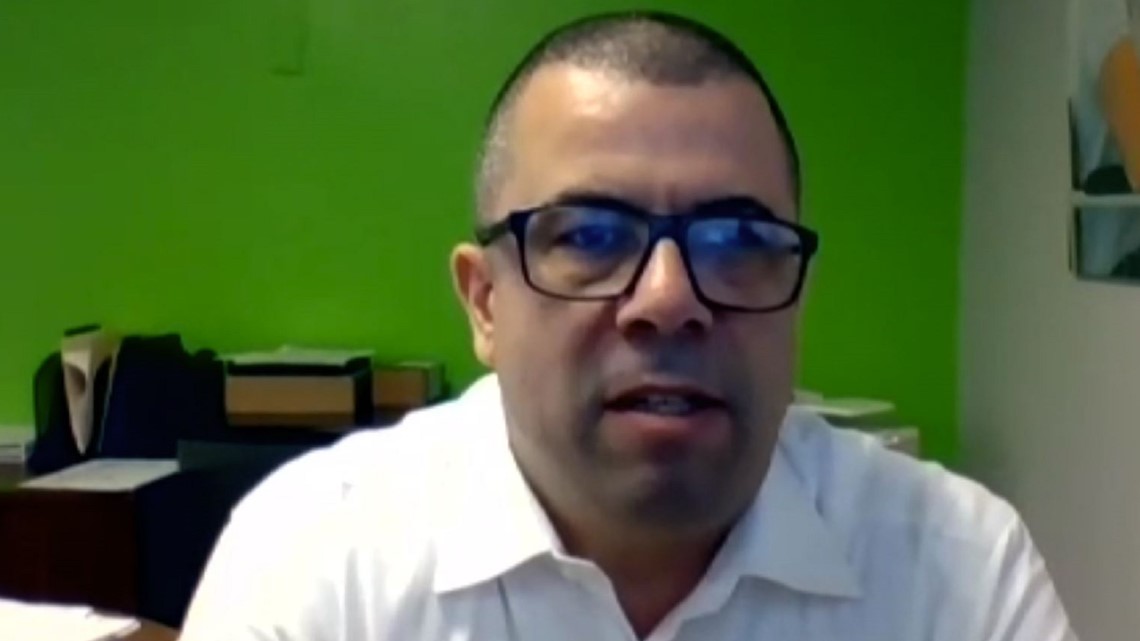
He's not the only one who received the calls.
"So, you're selling a gas deal for $29?" asked Ingalls over at KING-TV in Seattle.
Turns out the guy on the line is inmate No. C07165. According to the Department of Corrections, he lives at a facility in St. Petersburg. He, too, works at Southeast Energy Consultants in Pinellas Park.
Our cameras showed up at the facility several mornings to find people walking from the Department of Corrections site into Southeast Energy Consultants. There were signs outside offering $500 weekly and showing they were hiring, so we wanted to know what was going on inside the office.
On the other side of these doors, we found a typical reception area when we walked in; and toward the back of the building, there were cubicles where dozens of employees could be seen on phones.

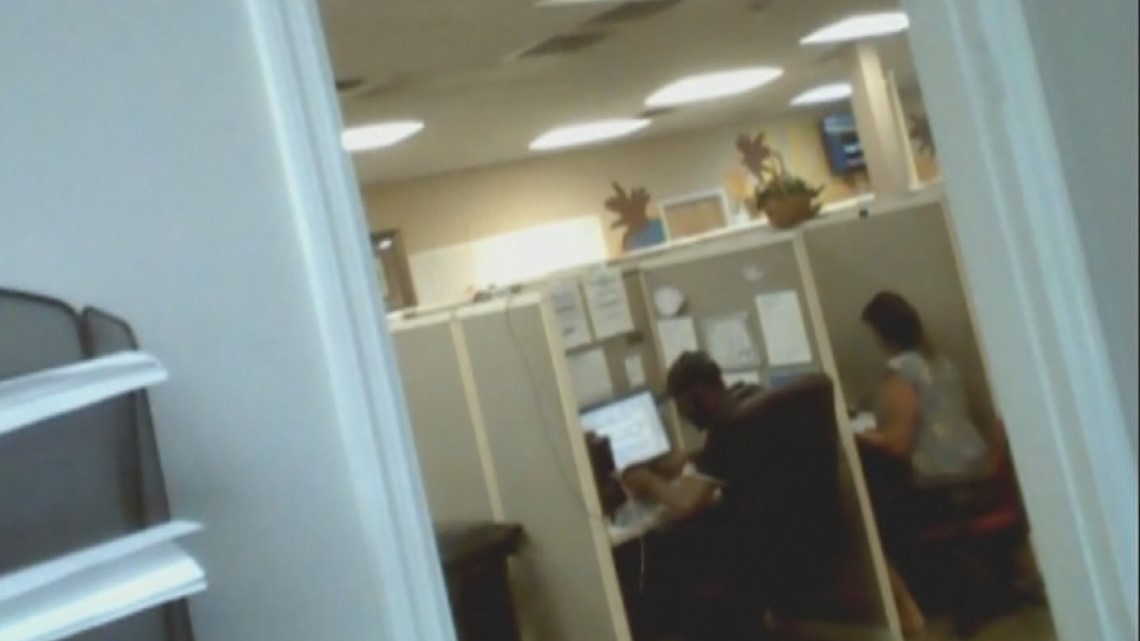
10 Investigates discovered Southeast Energy Consultants is making calls to gas and electric customers in deregulated states like California and Texas. They don't call Floridians because our power is owned by utility companies.
A former employee told us in one week, she could make up to $500; but that was based on the number of sales she made. She got hung up on a lot, she said, and that took a toll on her.
She would make more than 200, maybe 300, calls a day.
"I got cursed out a lot," she said. "I got hung up on a lot...I got a lot of people that said, 'Take me off the list.'"
See the data: Nationwide robocall data through March 2021
The inmate and former employee both said they used an auto-dialer to make the calls and would say they were calling on behalf of SFE Energy, a company that actually has no offices in the state of Florida or even in the United States.
The office we located was in Canada.
It replied to one of our requests with the following:
"We offer fixed price and monthly flat rate natural gas supply contracts to California customers. Due to contractual obligations we cannot provide you with any further information."
When it comes to robocalls, the Federal Communications Commission says the term "robocall" should be interpreted as any nuisance or scam call from an unknown caller.
The term comes from the use of a computerized auto-dialer to place the call.
We put in a request with the owners of Southeast Energy Consultants to speak with us, but they never agreed to sit down for an interview. They sent us this statement in an email:
"We have always complied in accordance to all local, state and federal laws pertaining to our industry, including robo-dialing and do not call, and take them very seriously."
So, who is responsible for these inmates?
We wanted answers from the Department of Corrections: who is overseeing the work-release jobs? Are the rules being followed?
And is the state cashing in on the calls many of you want to see stopped?
A work release issue? The DOC and employers need to work together to ensure inmates gain the skills they need, a lawmaker said.
The 10 Investigates team located Department of Corrections inmate No. C07165 after he told our colleague in Seattle that he was, in fact, an inmate.
We went to Tallahassee and to the front steps of the Department of Corrections, hoping for an interview with Secretary Mark Inch. Our team has been asking for nearly a month.
Instead, the department sent the following statement:
"Inmates eligible to participate in community work release programs work at paid employment sites in the community during their transition from incarceration to becoming returning citizens."
We found there are 24 inmates living at the St. Petersburg Department of Corrections facility who work at Tampa area telemarketing companies, and some of them were seen heading from their work-release facility in St. Petersburg to the Southeast Energy Consultants office.
And while the Department of Corrections tells us, "inmates may seek employment in the community and submit job requests for approval to either our staff, or contracted staff – depending on the facility where they are housed," we learned the agency is cashing in on these work-release inmates jobs' with automatic deductions from their checks.
- 55 percent for subsistence, which the Department of Corrections says is the "cost to incarcerate the inmate."
- 10 percent into savings for disbursement upon the inmate's release.
- In some cases, 10 percent for family support.
- 10 percent for restitution, court costs or fines that also are taken out of checks.
That leaves some inmates with only 15 percent take-home pay from the money they make.
Although the Department of Corrections didn't accept an interview, lawmakers had plenty to say.
"I think this is part of a much broader conversation about work release, and how we should be talking to employers from around the state and encouraging and incentivizing employers to actively utilize work-release inmates to help them gain skills," State Sen. Jeff Brandes, R-St. Petersburg. "Because ultimately, these are individuals who in three to six, nine months are going to be released.
"And we want them to have skills so that they reenter the work that they reenter Florida and are able to compete in the workforce."

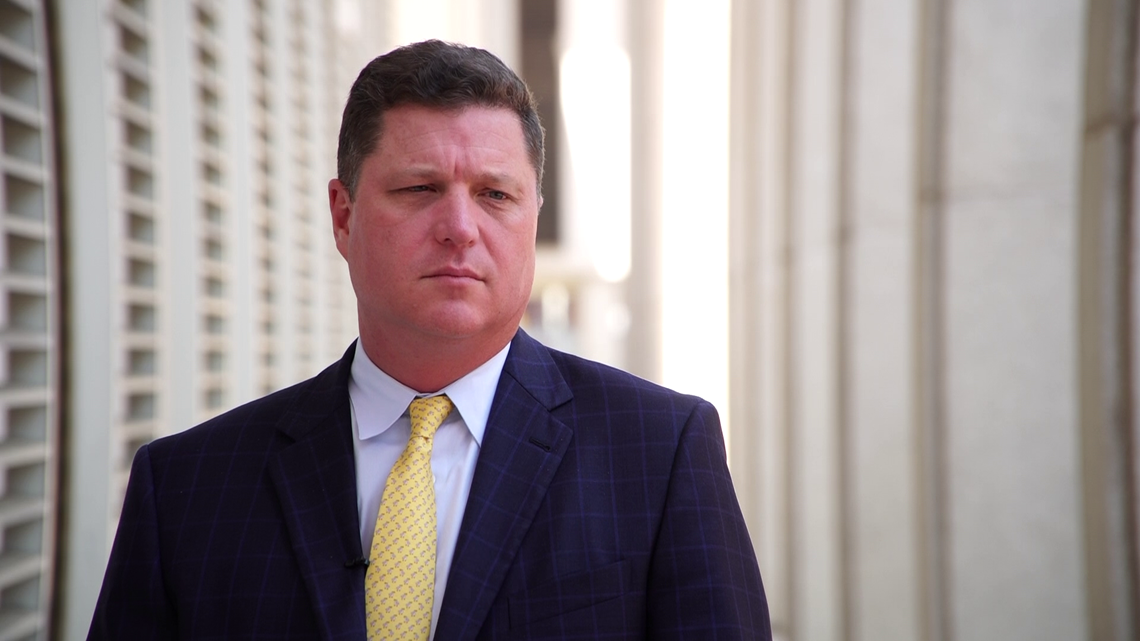
He said he was not aware of inmates working in call centers.
"...I think it highlights the fact that we need more employers to step up and to engage with our Department of Corrections in order to take work-release inmates," Brandes said.
Inmates working at call centers isn’t something new, either. The Orlando Sentinel reported in 2011 that SWAT team members raided a telemarketing office – police said was running "a time-share scam" – where 20 inmates on work release were working at the time.
There have been multiple complaints with the BBB about the call center in Pinellas Park where some of our inmates work. The BBB even has a warning on its site about a pattern of complaints, stating:
"Consumers claim that the business will not stop contacting them, even after consumers ask the business to stop."
Santos, as we earlier mentioned, lives in California and filed a BBB complaint. The California Public Utilities Commission says it received "hundreds" of complaints in the past 16 months about SFE Energy, which the facility in Pinellas Park is calling on behalf of.
The Florida Department of Agriculture, which oversees telemarking licenses, says it hasn't had any complaints about the call center. It approved more than 7,100 licenses in 2020.
Its main offices are next door to the Department of Corrections.
Following the rules A bill that could have helped to curb robocalls ultimately died in the Florida Legislature. So, what can you do to stop at least some calls?
Our KING-TV colleague in Seattle asked the person on the line if he could record the call, and his request was accepted. The caller was selling a gas and electric bundle to somebody he thought was in California.
"Are you the PG&E customer?" Department of Corrections inmate No. C07165 asked Ingalls.
10 Investigates sent emails and made calls for a month trying to get someone from the Department of Corrections to talk to us about inmates taking part in nationwide robocalls, and the department denied our requests.
But they did take action.
"We appreciate you bringing forward this issue to our Department, and I assure you we take the allegations very seriously," the department wrote in an email. "Out an abundance of caution inmates were temporarily removed from job assignments..."
Four days later, they were back on the job.
"...We regulate telemarketing businesses, as well as Telemark individual telemarketers," said Richard Kimsey, the director of consumer services at the Florida Department of Agriculture. "As part of the licensing process, we do a background check. And then we will issue licenses for individual telemarketers."

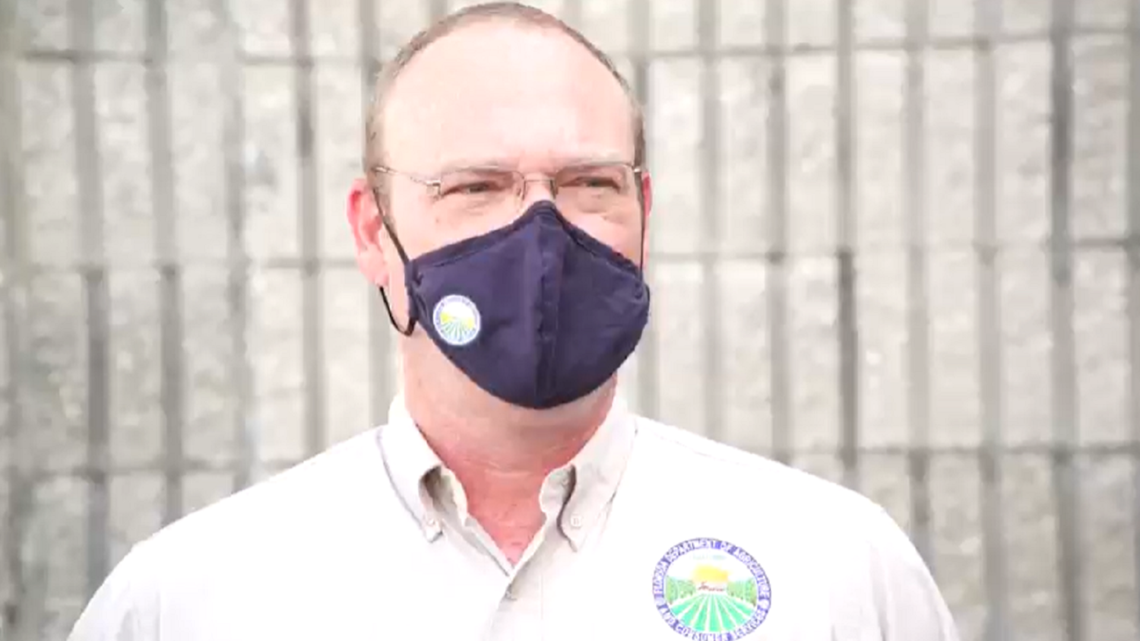
He was unaware some of the licenses were being given to inmates.
"Most of our investigations [into robocalls] are complaint-based," Kimsey said. "So, we asked customers or consumers to send or file a complaint against any 'do not call' violation."
The problem is, most consumers don’t really know who is calling them.
Remember that phone call Ingalls took in Seattle? The caller said, "We are calling on behalf of SFE Energy." That's not the name of the call center in Pinellas Park. That company is called Southeast Energy Consultants. The contact information we discovered for SFE Energy shows its location in Canada.
And the phone number they called on popped up as a California number on Ingalls' phone.
Here's what Southeast Energy Consultants had to say:
"We have always complied in accordance to all local, state and federal laws pertaining to our industry, including robo-dialing and do not call, and take them very seriously."
And we asked the Department of Agriculture how they make sure these companies are following the rules with so many telemarketers in the state.
"They provide a certain information, we don't inspect them during the licensing process, they provide us certain information, like the scripts, that they're going to be using information like that, that we can review to make sure they're not violating the statute," Kimsey said.
RELATED: How to stop getting robocalls
Under both the Federal Trade Commission and the Federal Communications Commission robocall guidelines, there are rules telemarketing companies have to follow.
Florida Chief Financial Officer Jimmy Patronis wants to crack down on those unsolicited calls, even tweeting about the importance of passing legislation that would curb the epidemic of unsolicited phone calls in Florida.
Lawmakers unanimously passed Senate Bill 1120 toward the end of the Florida Legislature's most recent session.
Patronis had no clue about inmates placing some of those calls.
"Well if that is something that that you have verified that's taking place in the state of Florida, then it warrants an investigation," Patronis said. "And if it weren't, then if that is actually the standard in case then you get to change the law or do a rule change to ensure that you don't have that type of solicitation."
The calls inmates are making in Florida are legal. If Gov. Ron DeSantis, however, signs Senate Bill 1120 to curb robocalls in the state, it would make it illegal for a person to use technology that displays a spoofed number to the call recipient. A caller also would be barred from calling a person more than three times on the same subject in a 24-hour period.
But many of these companies can continue doing what they are doing because they call outside of the state of Florida. Any legislation would just affect people who live here.
Fed up with robocalls? Tell a lawmaker Consider contacting your representative.
See lawmakers' contact information below:
Congress
Local state senators
- Sen. Ben Albritton - serving DeSoto, Glades, Hardee, Highlands, Okeechobee and parts of Charlotte, Lee and Polk
- Sen. Jim Boyd - serving Manatee and part of Hillsborough
- Sen. Jeff Brandes - serving Pinellas
- Sen. Danny Burgess - serving Hillsborough, Pasco and Polk
- Sen. Janet Cruz - serving Hillsborough
- Sen. Joe Gruters - serving Sarasota and part of Charlotte
- Sen. Ed Hooper - serving Pasco and Pinellas
- Sen. Darryl Ervin Rouson - serving Hillsborough and Pinellas
- Sen. Wilton Simpson - serving Citrus, Hernando and part of Pasco
- Sen. Kelli Stargel - serving Lake and Polk
More robocalls coverage from TEGNA investigative journalists:
►For more 10 Investigates reports: Get the free 10 Tampa Bay app
►Stay In the Know! Sign up now for the Brightside Blend Newsletter


